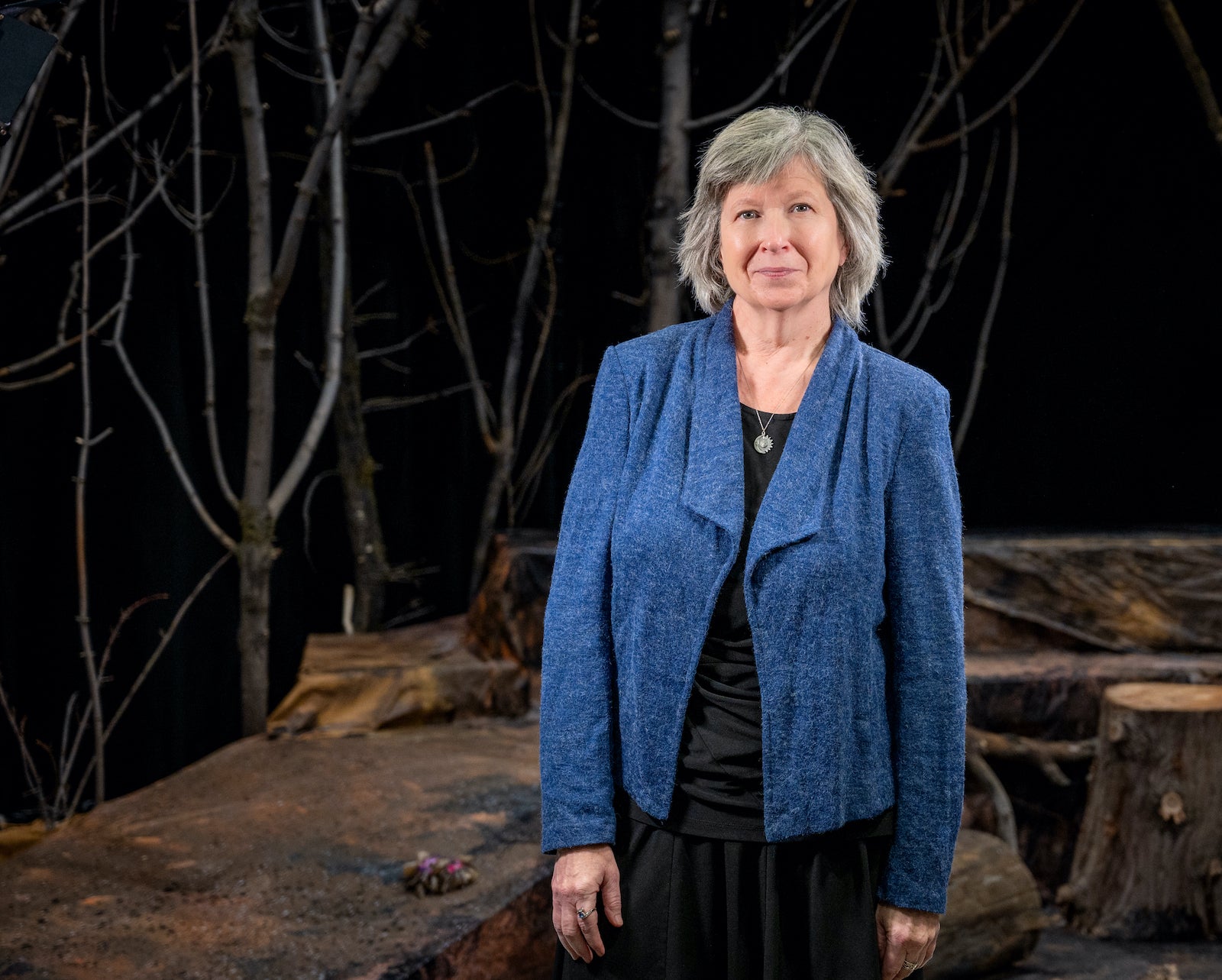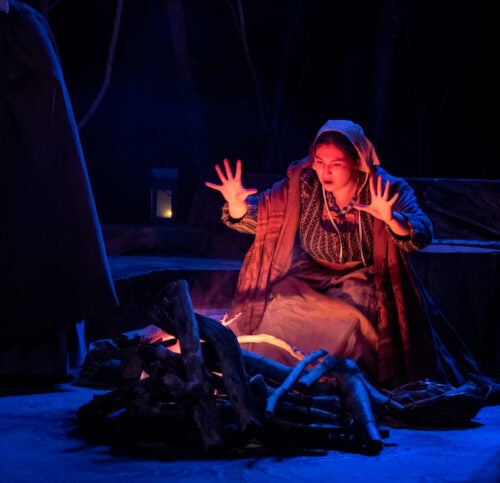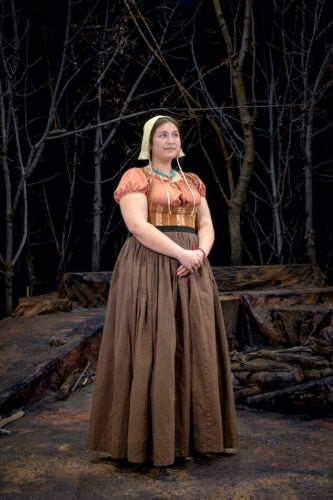
If you’re familiar with “My Fair Lady,” the phrase “the rain in Spain stays mainly in the plain” conjures the moment when the posh accent of London high society replaces Eliza Dolittle’s “uncultured” Cockney dialect, thanks to Professor Henry Higgins’ voice coaching.
Accents and dialects serve as an invisible identification card, distinguishing who does and doesn’t belong to a certain culture or geographic area. This is especially crucial in film, television and theater. They require the audience to suspend disbelief and accept that Tom Hanks is Forrest Gump from Greenbow, Alabama, rather than a California-born actor, or that Margot Robbie is at home in a Malibu dream house, despite having grown up in a small town west of Brisbane, Australia.
Lecturer Ann Price knows quite a bit about the value of dialect and voice coaching. She has coached actors for 30 years in Boise State’s Department of Theatre, Film and Creative Writing, as well as commercially. She worked as a voice and dialect coach for Michigan Opera Theatre, the Attic Theatre in Detroit, Michigan, the Idaho Shakespeare Festival, Boise Contemporary Theater and for the Company of Fools in Hailey, Idaho.
“I hope audiences won’t notice the performer’s dialect work,” Price said. “The best compliment for me would be that no one knew I’d worked on the show at all.”

Creating authentic voices
Price originally pursued a bachelor of fine arts at Wayne State University to become an actress, but in her senior year she felt “an inkling of a passion” to support actors rather than be one. She took classes and workshops to improve her voice as a performer and began taking on private clients. Decades later, she said, “I’m still doing the same thing, and I still feel that passion.”
In January 2023, Price coached actors in Boise State’s production of “Afflicted: Daughters of Salem.” This performance centers on the 1692 witchcraft hysteria and trials in Salem, Massachusetts. Not only did actors speak using the historic speech patterns of America’s Puritan immigrants, but a central character, Tituba, played by Boise State alum Rachel Fichtman (BA, theatre arts and performance, 2022), spoke in the cadence and dialect of a slave from Barbados and Venezuela.
How does one begin to build and practice an authentic, “lived-in” voice?
When you’ve been doing this as long as Price, you develop tricks and shortcuts. In addition to combing through linguistic resources — she searches YouTube for authentic voices and desired vocal qualities — Price occasionally picks up the phone and dials the public library in the region where she wants to learn about an accent or dialect. While chatting with a Mobile, Alabama, librarian or a clerk in The Bronx, New York, she takes linguistic notes for her performers.
A voice for every performance

One of the biggest challenges for a voice coach is contending with a performer’s vulnerability and lack of confidence, Price said. “I’m very lucky in my job as a dialect coach that I work with generous performers who allow me into their process. That takes an enormous amount of trust on their part.”
She helps students like Fichtman immerse themselves in their characters to give their best performances.
“This process is very important to me because once I find a physical spot that I can ‘feel’ the voice in, then I can build my physicality around it because I have an anchor,” Fictman said. “To learn from Ann Price is a blessing and a gift.”